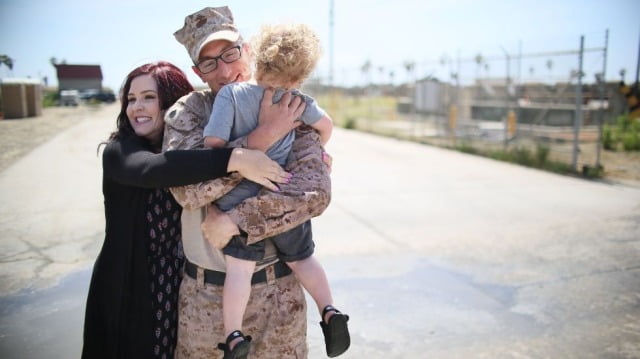There are over two million active duty service members in the U.S today and over 700,000 military spouses. According to Defense Department estimates, over 20 percent are unemployed.
While our nation has a fervent and well-deserved commitment to promote career opportunities and paths for our veterans, military spouses often find themselves left out of the narrative.
Military spouses face a number of hardships every day. Spouses fulfill a multitude of roles at home, in addition to serving as their partner’s main support system. These roles can get pushed to the limit during challenging times, particularly when it comes to navigating cross-country and international moves.
Fortunately, hope is on the horizon for many in the community. The president recently unveiled a new executive order intending to boost hiring help for military spouses. It’s thrilling to see our nation’s military spouses receive this long-overdue support — but how can we ensure this forward-looking movement continues?
Historically, it has been especially difficult for military spouses to gain employment after they make a permanent change of station move with their active duty spouse.
Defense officials estimate that more than 132,000 active-duty spouses in the workforce are in a field that requires licensing. It is an arduous, complicated process to gain a license in one’s new state of residence. In some cases, the new state of residence will deny the license from another state altogether, regardless of an individual’s qualifications.
These scenarios often result in a heightened strain on family income and leave many military spouses without employment. It’s part of the reason why the unemployment rate of military spouses is three to six times the national average.
Legislative action, such as the recent executive order and The Military Spouse Licensing Relief Act , aim to tackle this issue head on. These actions bolster resources for veteran and military spouse entrepreneurs who relocate, ensure flexible telework capabilities, increase federal jobs that aim to hire military spouses, and offer provisions on occupational licenses. These measures are expected to increase the employment pool, as military spouses who have recently moved to a new state will not face the career obstacles that have long accompanied constant relocation.
Alongside legal action comes the responsibility for companies to take the initiative themselves and hire these deserving and well-qualified military spouses. But where to begin?
Some nationwide partnerships better connect military spouses with the corporate world and expand employment opportunities that currently exist within the Department of Defense. These programs include offerings like The Military Spouse Employment Partnership , a targeted recruitment and employment solution that provides companies with direct access to military spouses seeking career opportunities, and vice versa. They also offer The Military Spouse Career Accelerator Pilot program, a 12-week fellowship that provides paid opportunities at civilian employers across various industries and locations for military spouses. At the end of the fellowship, spouses who excel in the program may be invited to join the host company as a direct hire.
Whether you choose to partner with the Department of Defense through these programs, or create and implement a program of your own, it’s far past the time for companies to recognize and embrace military spouses as a crucial part of their organization’s successes.
Today’s workplace culture exists online as well as in the office, and military spouses in a remote role can continue their work even when they make a military move — a flexibility they previously may not have had.
Military spouses are a vital part of the military community, but are far too often overlooked in the corporate world.
The recent legal actions open the door for thousands of military spouses, but it’s our responsibility to ensure this door remains open. The next time you enter a meeting, or network with a peer, consider this: what can we as business leaders do to ensure that the assistance, compassion, and value we express toward our nation’s heroes extends to their families too?
Scott Evasius is the Chief Financial Officer and Vice President of Business Operations for HomeSafe Alliance. Scott has over 30 years of experience managing large complex programs and businesses, primarily in the DoD space. Prior to joining HomeSafe, Scott held executive leadership positions at KBR and Honeywell.

